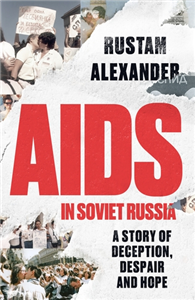"Immunity" von Marisa Reichardt erzählt die Geschichte der 16-jährigen June, die inmitten eines Konflikts zwischen den Überzeugungen ihrer Eltern und ihrem eigenen Bedürfnis nach Gesundheitsschutz steht. Aufgewachsen in einer Familie, die sich strikt gegen Impfungen ausspricht und einen alternativen Lebensstil pflegt, hat June nie eine normale Kindheit erlebt. Ihre Welt gerät ins Wanken, als sie sich mit den Masern infiziert, einer Krankheit, die verheerende Folgen nach sich zieht und das Leben anderer gefährdet. Dieses Ereignis zwingt June, sich den dogmatischen Ansichten ihrer Eltern zu widersetzen und für ihr Recht zu kämpfen, selbst über ihre Gesundheit zu entscheiden. Mit der Entscheidung, die Vormundschaft ihrer Eltern gerichtlich anzufechten, um sich impfen lassen zu können, betritt June einen schwierigen und emotional aufgeladenen Pfad. Der Roman ist nicht nur ein spannender Coming-of-Age-Roman über die erste Liebe und das Erwachsenwerden, sondern auch eine tiefgründige Auseinandersetzung mit Themen wie Selbstbestimmung, familiäre Konflikte und gesellschaftliche Verantwortung. June entwickelt sich zu einer starken Protagonistin, die trotz der Gefahr, ihre familiären Bindungen zu verlieren, mutig für ihre Überzeugungen eintritt. Marisa Reichardt gelingt es, eine fesselnde Geschichte zu erzählen, die wichtige Fragen aufwirft und zum Nachdenken anregt. Spannendes Jugendbuch, das aktuelle gesellschaftliche Debatten rund um Impfungen und Selbstbestimmung aufgreift. Starke, inspirierende Protagonistin, die gegen die Überzeugungen ihrer Familie ankämpft, um für ihr Recht auf Gesundheitsschutz einzustehen. Behandelt die wichtige Thematik der Selbstbestimmung und körperlichen Autonomie in einer Weise, die Jugendliche anspricht und zum Nachdenken anregt. Eingebettet in eine Coming-of-Age-Geschichte, die neben dem ernsten Hauptthema auch Raum für erste Liebe und die Entwicklung persönlicher Überzeugungen bietet. Bietet tiefe Einblicke in die Konflikte zwischen persönlichen Freiheiten und gesellschaftlicher Verantwortung, was zur aktuellen globalen Gesundheitslage besonders relevant ist. Fördert durch die einfühlsame und realitätsnahe Darstellung der Charaktere und Situationen Verständnis und Empathie für Menschen mit unterschiedlichen Ansichten. Eine Geschichte über Mut, Veränderung und das Aufbrechen alter Muster, die Leserinnen und Leser jeden Alters berührt und inspiriert.

























